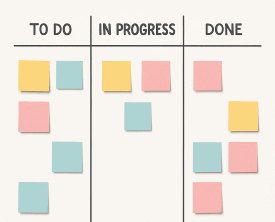What is the Difference Between Planning and Scheduling?
By Mark Ballance, Resource Scheduling Specialist at Schedule it Ltd since 2010.
 Planning vs. Scheduling: Are they two Sides of the Same Coin in Project Management? Project success relies on well-defined planning and detailed scheduling.
Planning vs. Scheduling: Are they two Sides of the Same Coin in Project Management? Project success relies on well-defined planning and detailed scheduling.Though seemingly similar, these crucial steps have distinct purposes and timelines within a project. Understanding their differences is key to successful project management.
Planning: The Big Picture

Planning is the initial phase, laying the foundation for the entire project. It's about defining the what, why, and how of your project goals.
Use simple tools like sticky notes or a kanban board to visually map out your tasks and dependencies for initial planning. This visual approach helps teams collaborate more effectively and identify potential bottlenecks early on.
Scheduling: The Detailed Execution Plan

Once the plan is in place, scheduling provides the detailed execution plan. It's about translating the plan into a concrete timeline.
Why Both Are Essential
Planning provides the vision, while scheduling provides the action plan. They work together like an architect's blueprint and a construction crew's implementation. Understanding their roles is critical for successful project management.
Key Takeaways
Example: Building a house. Planning involves deciding on the style, features, and budget. Scheduling involves creating a detailed timetable for each construction phase, assigning specific tasks to contractors, and factoring in material delivery timelines.
Try Schedule it Free
No credit card required. Capterra/G2











